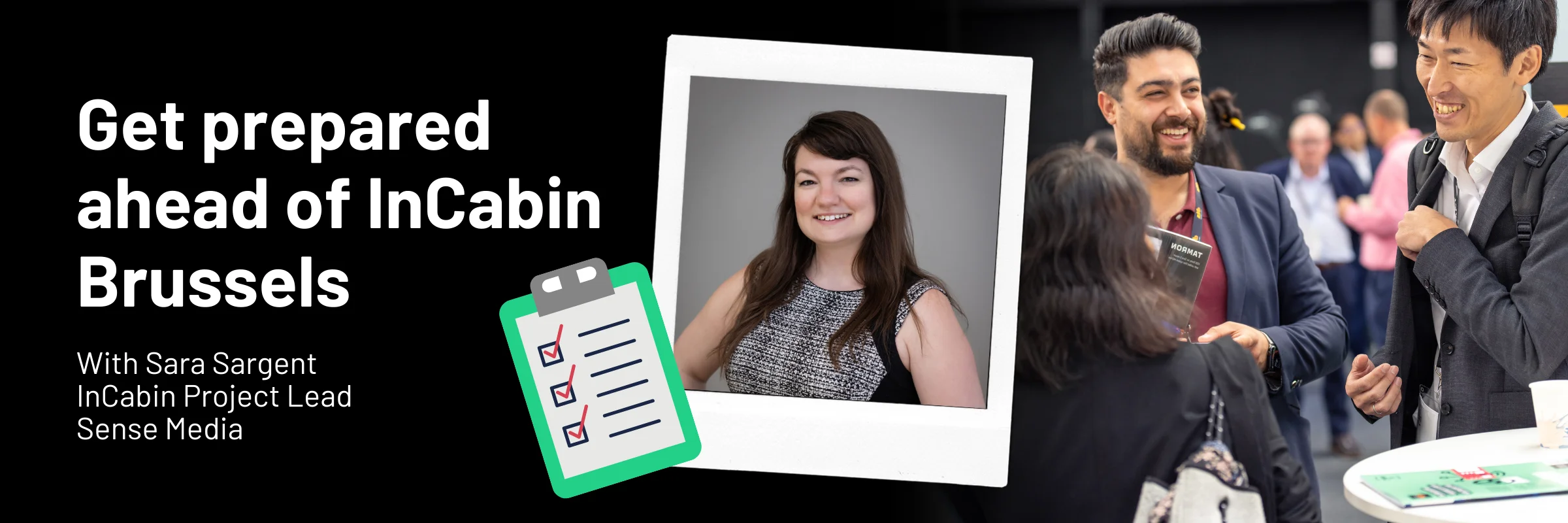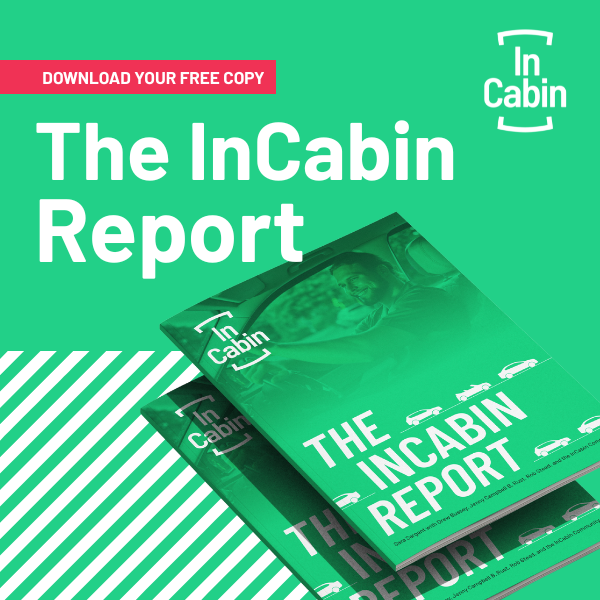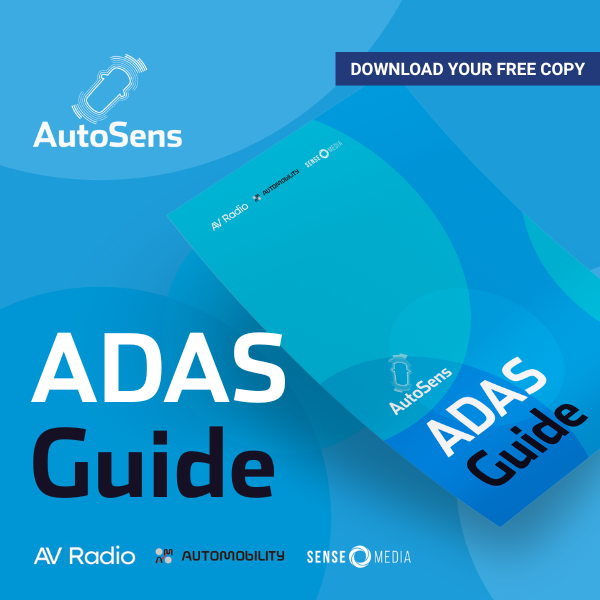PLUS Don’t miss my event checklist at the end!
Conference Prep! You know, figuring out who to meet and how to get the most out of your ticket and travel costs? That task we sometimes do in a rush at the airport because we’re all so busy? As I was doing conference prep for my own event, InCabin Brussels, I thought I might as well share it because, well, I’ve actually been working on it for the last 18 months.
Use my cheat sheet (& Rob’s) as a reference tool to figure out who you should be talking to and setting up meetings with at InCabin Brussels, June 20-22. If anyone is positioned to give expert advice on how to get the most out of this event, it is me. I quite literally think about it every day.
For each topic I will give you:
- A summary on the trends
- Links to content on the topic so you can be up to speed before the show (for some you’ll need to be logged in with your On Demand account)
- What you should mark on your ‘My Schedule’ feature on the agenda
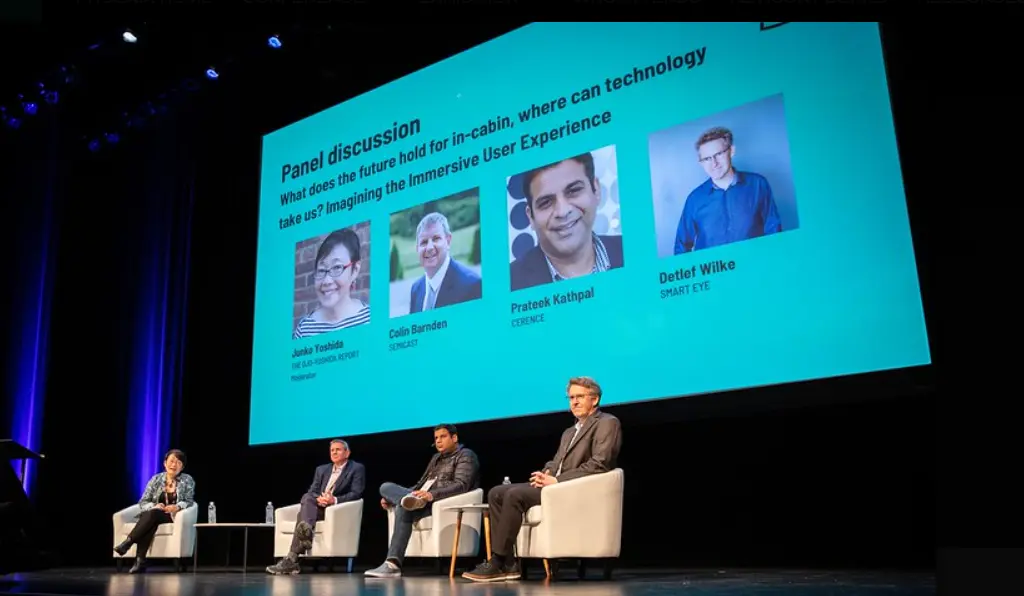
Want to hear more from Sara?
Check out the InCabin Technology Review 2.0. In this exclusive industry wide report, Sara explores key areas including DMS and OMS, infared, RADAR, data, semiconductors, illumination, 3D sensing, cognitive state sensing and more. The Review also features a fully updated InCabin Market Map, setting out some of the key companies in our industry and their current focus.
HUMAN FACTORS
This is my personal favorite part of InCabin: understanding humans. The car has been so focused on understanding its environment for ADAS and automated vehicles, it’s good to get back to the fundamentals of understanding who this is all for. It is the human beings who just want to get to work, school, home, fun, football, and so on, in just as good a state as when they left, if not better.
In Phoenix, the show began and ended with Human Factors. David Mitropoulos-Rundus, from the Hyundai American Technical Center told us about the cost of humans dividing their attention, and the afternoon panel challenged our ideas about which human factors are at play in the vehicle and a bit of a debate on the future of buttons. This is where we discovered Dr. Peter Burns, as he was in the audience engaging the panel with fantastic challenges. I’m thrilled he’s on the agenda this time! Alex Wipperfurth presented on the in-cabin space being a wellness area, who wouldn’t benefit from that?
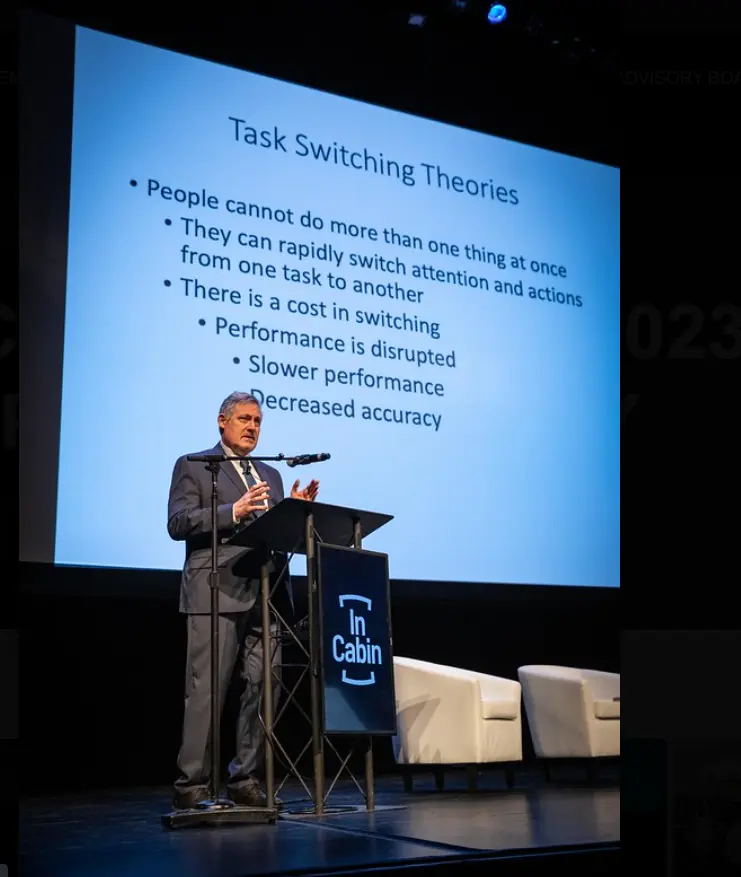
If you are interested in learning more about Human Factors you can attend this Tutorial by Dr. Peter Burns on Tuesday Afternoon with a Full Pass. There will be presentations by Professor Natasha Merat from Leeds as well as by Dr. Mahdi Rezaei from the University of Leeds.
DRIVER IMPAIRMENT
Driver Impairment has been a topic of controversy, where we as an industry have a united goal of using technology ethically to have fewer impaired drivers on the roadway. Last year during my EuroTour I met with someone who introduced me to some new perspectives about detecting whether a driver is drunk. The more I talked with people about it the more I heard all of these different ethical challenges – think of someone being falsely detected as drunk needing to drive someone to the hospital for instance.
Detecting impairment was presented on in Phoenix by:
- Detlef Wilke from Smart Eye, who explained that data on the legally acceptable Blood Alcohol Concentration (BAC) showed that impairment begins below legal BAC limits. Therefore, the system should determine whether the driver is fit to drive from multiple sources of information, not just BAC. Part of their approach is to alert the driver that they are “Unfit to drive” rather than using the term ‘drunk’.
- Clémentine François from Tobii educated us on the various examples of physiological and cognitive states that impact drivers and their impairment. She also explained the process of their design for testing drowsiness and impairment which was quite thorough.
- Fabiano Ruaro from Bosch presented on a study they performed with 30 participants on a driving simulator, where they recorded eye gaze and head position movements to determine whether it was possible to assess whether a driver was drunk using this data. ‘Early warning’ performed even better than the ‘above limit’ detection. He explained that a camera is not as good as a breathalyzer at detecting a BAC and wouldn’t replace instances where one was being used, but that the camera is already in use in the vehicle, and even if it is not perfect it could help and should be viewed as a phased approach system rollout. The system doesn’t just detect whether a driver is drunk, but whether the driver is impaired.
The trend seems to be that we should be detecting impairment regardless of BAC measurements as there are plenty of cases where someone is impaired from something beyond alcohol. It doesn’t seem that anyone is stating BAC is an appropriate constant measure of someone’s ability to drive. I think the next hurdle will be to find agreement on what to do once we know the driver is impaired. Will we tell them they need to pull over…? give a time limit…? go into limp mode…? alert emergency services? I think that a lot of the ethical choices lie ahead in the discussions to answer that question. We will see what the panel has to say, at least I will as I am the lucky one who gets to moderate!
If you want more content on this attend the presentation at InCabin Brussels by Dr. Peter Burns from Transport Canada or the panel called Impairment Detection: An Ethical Debate.
FUTURE OF COMFORT
Of course, we are excited about the future of comfort features in our 3rd space after an energised presentation in Phoenix by Greg Plageman and Adi Capata of DTS/Xperi on dreaming about ‘what if’ when it comes to the in-cabin experience.
Adi will take the stage in Brussels once more with a presentation that promises to give us a visual look at what the in-cabin experience could be… rumor has it there’s an element of Hollywood magic …and that’s all I’m allowed to say…
The expectations for the future of in-cabin joy are wild and endless. Everyone agrees the experience needs to be customizable, minimize distractions, and enable the driver and passengers to be productive on the move. There’s also the topic of the software architectures best suited to enable all the cool in-cabin applications, less exciting to visualize but just as important I suppose – and there are presentations on that.
You’ll see further presentations on the in-cabin user experience in Brussels by Marco Willems from CARIAD, Verena Ihring from Bosch, Piotr Mroz of Varroc, and a panel called Mastering in-cabin Infotainment.
Karl Benz’s wife, Bertha Benz, is well known for her long distance, 12-hour journey in the prototype automobile. She believed that if she showed people that there was a better traveling experience out there that they would want it, and she was right. That was when it just being a car and not a horse was exciting enough! I hope to come out of InCabin Brussels with some examples of what the in-cabin comfort of my future Bugatti will feel like.
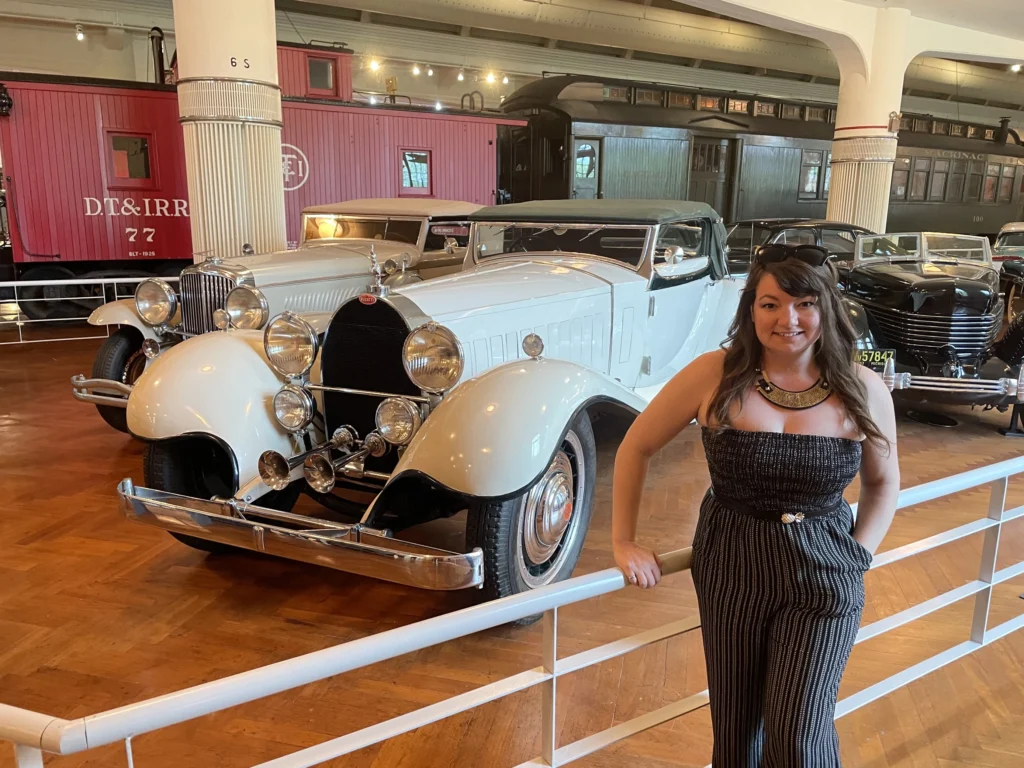
Pictured: Sara with her future Bugatti!
ROUNDTABLES
We can see that there is a theme of understanding the human driver from sensors to software and for dozens of applications from safety to comfort. You should now get started on your own conference preparation. If I don’t see you at the Tutorials with your Full Pass on Tuesday morning, then I’ll see you at the Roundtables at 5:15 on Tuesday. We’ve put together a really nice theme that includes 3 different topics, which works best for you?
Roundtable Theme: How do you want to understand the human driver? Through…
- …Time of Flight Sensing? > Melexis
- …Contact-based Biometric Sensing? > CardioID
- …Human Synthetic Data? > Devant & Seeing Machines
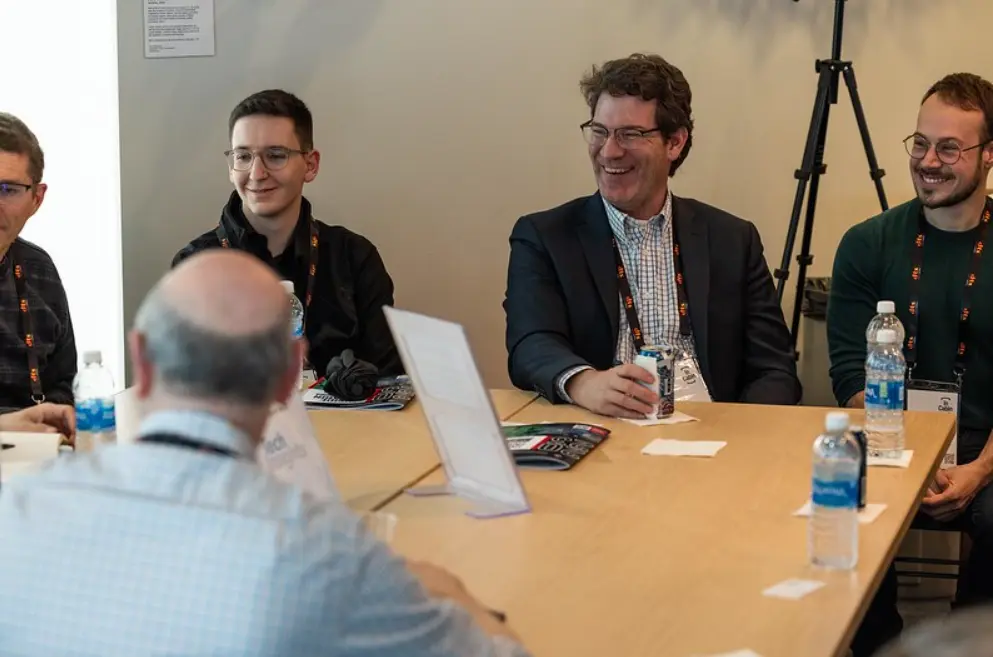
Pro tip: If you chose Time of Flight then check out this Tutorial on Tuesday morning by Albert Theuwissen with a Full Pass.
Oh, and I hope you like chocolate because there’s going to be loads of it..
SEE YOU THERE!
Warmly,
Sara
SARA'S CHECKLIST
- Read both Sara and Rob’s Guides
- Make a list of who you want to meet and invite your contacts to meet with you at the event. Bonus, if they’re an OEM or Tier 1 their pass is free.
- Follow InCabin on LinkedIn so you can meet people ahead of time.
- Watch informative one-to-one InCabin interviews on our AutoSens Youtube channel.
- Mark your must-see agenda items using the ‘My Schedule’ feature.
- Prepare a few questions you want to ask of presenters.
- Leave room in your luggage for swag. I don’t know if it gets cuter than the Optalert koala, more luxurious than the DTS/Xperi chocolate, or classier than the Appen cocktail kit, but make space.

